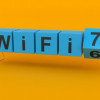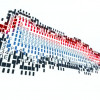Dutch researchers create system that measures stress in emergency callers' voice
Chances are that if you're calling 9-1-1 (or 9-9-9, or whatever it is where you are), you're not likely to tell the operator that your case isn't all that urgent, and that it can wait. The problem is, sometimes emergency dispatch centers are so overloaded with callers – all of them stating that they need assistance right now – that some sort of system is required in order to determine who should get help first. Dutch researchers claim to have developed just such a system, which analyzes callers' voices to determine how stressed-out they are.
The team, from Delft University of Technology, the Netherlands Defence Academy and TNO Defence, Security and Safety, developed a computer algorithm to prioritize the calls. They "trained" it using four different techniques, incorporating recordings of actual calls in which the final outcome was known. The algorithm measures parameters such as the speed at which the caller is speaking, rises and falls in the pitch and tone of their voice, and their rate of breathing.
In tests utilizing a database of calls, the algorithmic system reportedly had error rates as low as 4.2 percent. The researchers believe that by refining the algorithm and using a larger training set, that number could be improved upon.









































































